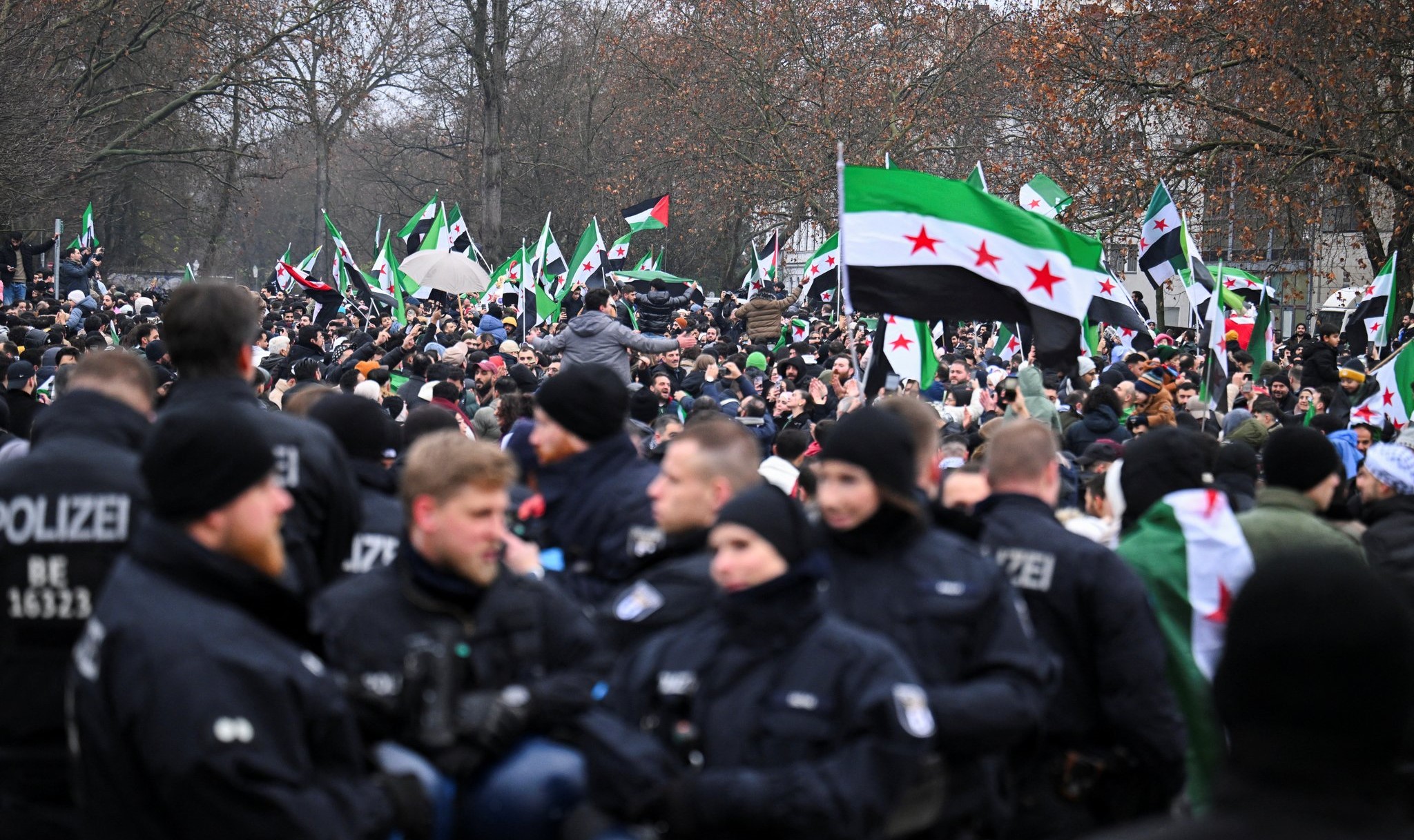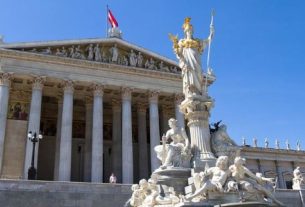On Sunday, thousands of supporters of the Syrian revolution gathered in Vienna to celebrate the reported ousting of Syrian President Bashar al-Assad. The demonstration, organized by the “Free Syrian Community in Austria,” aimed to express solidarity with displaced Syrians and their right to return to liberated villages.
Participants congregated near Vienna’s State Opera, waving Syrian flags emblazoned with “Free Syria.” The predominantly male crowd sang, danced, and listened to speeches. The event, however, drew criticism for controversial symbols displayed, including flags bearing the image of former Iraqi dictator Saddam Hussein. Demonstrators also chanted “Allahu Akbar,” a phrase meaning “God is great.” While the phrase itself is neutral, its association with terrorist groups like ISIS in Western discourse has sparked concerns.
Vienna’s police confirmed that the gathering was registered, with organizers estimating 3,000 attendees. Police spokesperson Anna Gutt stated that law enforcement, along with the state security agency, was present to monitor the rally and its participants. By early afternoon, the demonstration stretched from the State Opera to the Burgring, with additional supporters still arriving.
Though the event remained largely peaceful, participants set off firecrackers and fireworks, contributing to its high energy. Authorities reported no major incidents or arrests at the time of observation.
The organizers clarified their intentions in advance, framing the rally as a call to support displaced Syrians in camps and their aspirations to return home. The demonstration was planned to proceed from the State Opera along the Ringstraße to the Austrian Parliament.
Similar celebrations were held across several major European cities on Sunday, including car parades and gatherings by revolution supporters. These events underline the Syrian diaspora’s enduring advocacy for freedom and justice, despite the controversies surrounding some protest symbols.
The Vienna rally underscores the complexities of such demonstrations, where joy over perceived progress intermingles with debates over the representation of historical and political figures, challenging the narrative for both supporters and observers.




